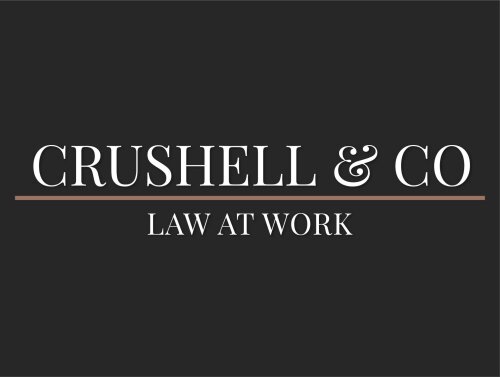Best Sexual Harassment Lawyers in Dublin
Share your needs with us, get contacted by law firms.
Free. Takes 2 min.
List of the best lawyers in Dublin, Ireland
About Sexual Harassment Law in Dublin, Ireland
Sexual harassment in Dublin, Ireland, is defined as any form of unwanted verbal, non-verbal, or physical conduct of a sexual nature. This can include anything from inappropriate comments and jokes to physical advances. The consequences of such behavior can be severe, impacting the victim's mental health and professional life. Irish law takes these matters seriously, with legislation in place to protect and provide recourse to those affected by sexual harassment.
Why You May Need a Lawyer
There are various situations where you may require legal help regarding sexual harassment:
- If you are a victim of sexual harassment and need to understand your rights and the legal options available to you.
- If you want to file a formal complaint or lawsuit against the harasser.
- If you are an employer and need legal advice on how to handle a sexual harassment complaint made by an employee.
- If you need to negotiate a settlement or compensation for damages caused by the harassment.
- If you require representation in court or before any relevant authority.
Local Laws Overview
Key aspects of local laws relevant to sexual harassment in Dublin, Ireland include:
- Employment Equality Acts 1998-2015: These acts prohibit harassment, including sexual harassment, in the workplace. Employers are required to take reasonable steps to prevent harassment occurring.
- Equal Status Acts 2000-2018: These acts extend protections against discrimination and harassment beyond the workplace to include goods, services, and other public arenas.
- Reporting Requirements: Employers must promptly address complaints and are recommended to have a formal procedure in place for handling harassment claims.
- Compensation: Victims of sexual harassment may be entitled to compensation for emotional distress, financial loss, or other damages incurred as a result of the harassment.
Frequently Asked Questions
What constitutes sexual harassment under Irish law?
Sexual harassment is any unwelcome behavior of a sexual nature that violates a person's dignity or creates an intimidating, hostile, degrading, or offensive environment.
How do I report a case of sexual harassment?
You can report it to your employer or the relevant authority. Employers are typically required to have a procedure in place for addressing such complaints.
What should I do if my employer does not take my complaint seriously?
If your employer fails to act on a sexual harassment complaint, you can seek advice from a lawyer or contact the Workplace Relations Commission (WRC) for further assistance.
Can I be fired for filing a sexual harassment complaint?
No, retaliating against someone for filing a sexual harassment complaint is illegal, and you have additional protections against unjust dismissal if it occurs.
What kind of evidence do I need to support my sexual harassment claim?
Relevant evidence can include emails, messages, witness statements, or any documentation that supports your claim of harassment.
How long do I have to file a harassment complaint?
Generally, you have six months from the date of the incident to file a complaint with the WRC, but this can be extended in certain circumstances.
Can men experience sexual harassment?
Yes, sexual harassment can affect individuals of any gender. The law protects all individuals from such behavior.
What are my rights if I am a witness to sexual harassment?
As a witness, you have the right to a safe and respectful environment and can report your observations. Your testimony may be valuable in supporting the victim's complaint.
Do I have to go to court to resolve my sexual harassment claim?
Not necessarily. Many cases are resolved through internal procedures, mediation, or settlements without needing to go to court.
What kind of compensation can I expect if my case is successful?
Compensation varies but may cover emotional distress, lost wages, medical expenses, or other related costs.
Additional Resources
Several resources are available to individuals seeking advice on sexual harassment in Dublin, Ireland:
- Workplace Relations Commission (WRC)
- Citizens Information Board
- Free Legal Advice Centres (FLAC)
- Dublin Rape Crisis Centre
- The Irish Human Rights and Equality Commission (IHREC)
Next Steps
If you need legal assistance in dealing with sexual harassment, consider taking the following steps:
- Document Everything: Keep thorough records of all incidents, including dates, times, witnesses, and any communications related to the harassment.
- Seek Legal Advice: Contact a solicitor who specializes in employment law or sexual harassment cases to discuss your situation and options.
- Report the Incident: Inform your employer through the appropriate channels and follow any established procedures for reporting harassment.
- Utilize Support Services: Reach out to any of the recommended resources or organizations for additional guidance and support.
Lawzana helps you find the best lawyers and law firms in Dublin through a curated and pre-screened list of qualified legal professionals. Our platform offers rankings and detailed profiles of attorneys and law firms, allowing you to compare based on practice areas, including Sexual Harassment, experience, and client feedback.
Each profile includes a description of the firm's areas of practice, client reviews, team members and partners, year of establishment, spoken languages, office locations, contact information, social media presence, and any published articles or resources. Most firms on our platform speak English and are experienced in both local and international legal matters.
Get a quote from top-rated law firms in Dublin, Ireland — quickly, securely, and without unnecessary hassle.
Disclaimer:
The information provided on this page is for general informational purposes only and does not constitute legal advice. While we strive to ensure the accuracy and relevance of the content, legal information may change over time, and interpretations of the law can vary. You should always consult with a qualified legal professional for advice specific to your situation.
We disclaim all liability for actions taken or not taken based on the content of this page. If you believe any information is incorrect or outdated, please contact us, and we will review and update it where appropriate.















